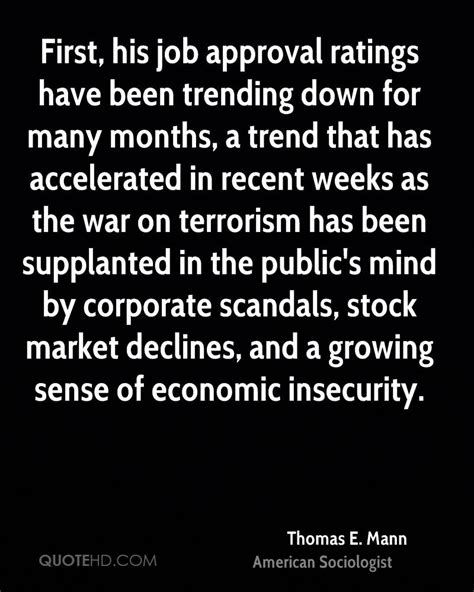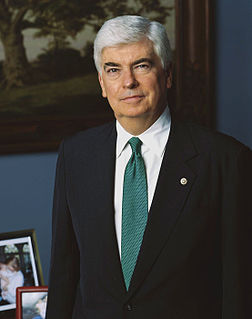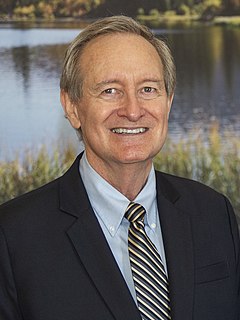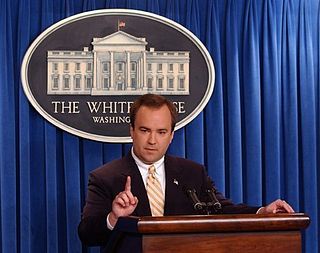A Quote by Elaine Sciolino
The first weekend after the attacks of September 11, George W. Bush had a meeting at Camp David with his top advisors, including Colin Powell, the secretary of state. And there was a lively debate about Iraq policy, in which some people from the Pentagon were arguing that the war against terrorism should include Saddam Hussein.
Quote Topics
About
Advisors
After
Against
Arguing
Attacks
Bush
Camp
Colin
Colin Powell
David
Debate
First
George
George W
George W. Bush
Had
His
Hussein
Include
Including
Iraq
Lively
Meeting
Pentagon
People
Policy
Saddam
Saddam Hussein
Secretary
September
September 11
Should
Should I
Some
Some People
State
Terrorism
Top
War
Weekend
Were
Which
Related Quotes
In 2002 and 2003, the Bush administration decided against bombing Zarqawi's camp in northern Iraq because it might derail plans to depose Saddam Hussein. By focusing on Zarqawi in his speech at the United Nations, Secretary of State Colin Powell inadvertently spread his fame throughout the Arab world.
Even before September 11, there was a debate in the administration about whether or not military force should be used to oust Saddam Hussein. You're not going to find one person in the top echelons of the foreign policy and national security establishment in the U.S. government who's going to say that Saddam Hussein should not be out of power.
When the United States invaded Iraq, a New York Times/CBS News survey estimated that 42 percent of the American public believed that Saddam Hussein was directly responsible for the September 11 attacks on the World Trade Center and the Pentagon. And an ABC news poll said that 55 percent of Americans believed that Saddam Hussein directly supported al-Qaeda. None of this opinion is based on evidence (because there isn’t any).
Both Presidents George Bush and Barack Obama pursued policies of regime change after 9/11 - with Bush removing al-Qaida's safe haven in Afghanistan and the sadistic anti-American dictator Saddam Hussein in Iraq - but Obama took it a step further and disregarded regional stability as a guiding factor for U.S. policy.
There is no question that Iraq possesses biological and chemical weapons and that he [Saddam Hussein] seeks to acquire additional weapons of mass destruction, including nuclear weapons. That is not in debate. I also agree with President Bush that Saddam Hussein is a threat to peace and must be disarmed, to quote President Bush directly.
These terrible terrorism acts occur because of political situations and injustice in various parts of the world. The Middle East is heavy with injustice. After September 11,George W.Bush announced that he had always had a vision of a Palestinian state. Why didn't he tell us that before September 11, when it would have been a bit more impressive?
Every president inherits difficult problems. George W. Bush inherited eight years of a failed foreign policy and did nothing about the growing threat of Islamic terrorism, except a one-time lob of a cruise missile into the desert at a camp that had long been abandoned. George Bush inherited that, and 9-11 was the result of that. Every president inherits problems. Harry Truman inherited a war. Stop blaming the person before you and go forward and take leadership and deal with the problem.
It is regrettable that Senator Kennedy has chosen Veteran's Day to continue leveling baseless and false attacks that send the wrong signal to our troops and our enemy during a time of war. It is also regrettable that Senator Kennedy has found more time to say negative things about President Bush then he ever did about Saddam Hussein. If America were to follow Senator Kennedy's foreign policy, Saddam Hussein would not only still be in power, he would be oppressing and occupying Kuwait.
I think the key anecdote in the book is when Colin [Powell] and I were discussing Iraq. Colin was upstairs in the Treaty Room, in the residence. And he talks about his concerns about the use of military in Iraq. And I said I felt the same concerns, but it might be that we have to use it. In which case, he said, "I support you."
Before September 11, we were fighting terrorism in our southwestern Philippines, and it was a lonely fight. However, we were able to contain it now in one island in that part of the Philippines. But after September 11, and after the creation of the global coalition against terrorism, now we have allies, and I believe now it will easier with allies.





































